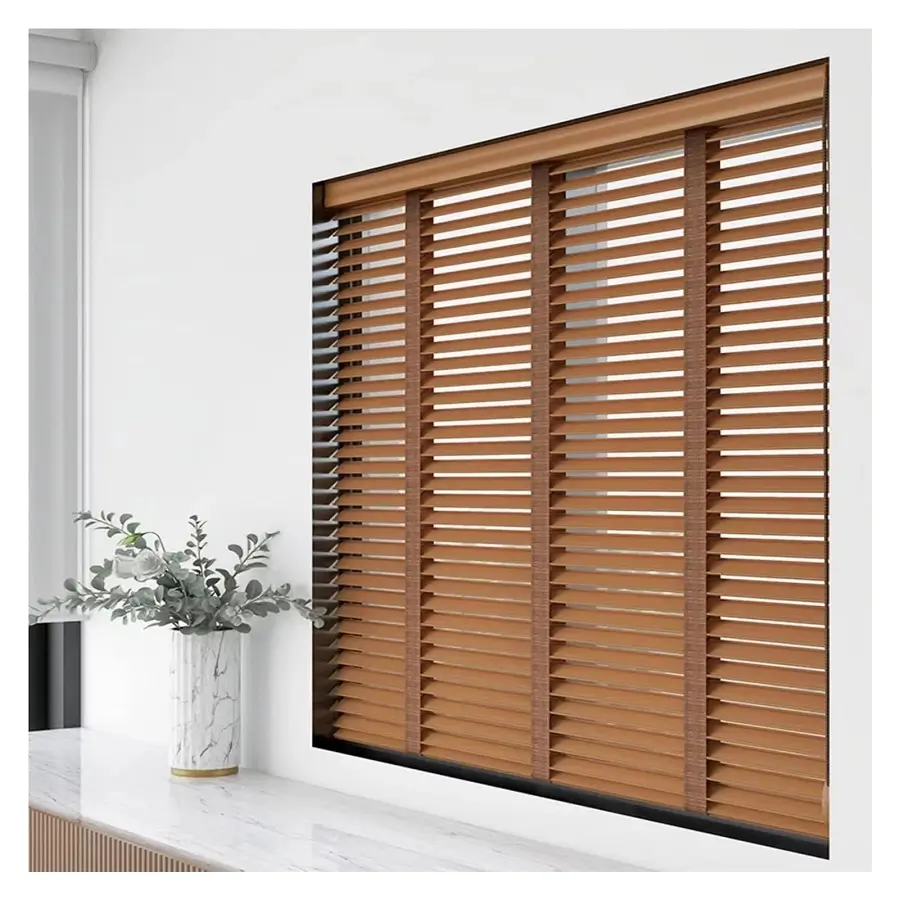Blog

Smart Blinds: Embracing Convenience and Efficiency in Home Automation
In an era defined by technological advancements, the integration of smart devices into our daily lives has become increasingly prevalent. From smart thermostats to voice-controlled assistants, the concept of home automation has revolutionized the way we interact with our living spaces. Among these innovations, smart blinds stand out as a quintessential component of modern home automation, offering a seamless blend of convenience and efficiency.
Gone are the days of manually adjusting blinds to control sunlight and privacy. With smart blinds, homeowners can effortlessly manage natural light, enhance energy efficiency, and augment the overall ambiance of their living spaces. These intelligent window treatments are equipped with cutting-edge technology that allows them to be controlled remotely through smartphone apps or integrated with voice assistants like Amazon Alexa or Google Assistant.
One of the primary benefits of smart blinds lies in their ability to adapt to changing environmental conditions. By leveraging sensors such as light sensors or temperature sensors, smart blinds can autonomously adjust their position throughout the day, optimizing natural light levels and reducing the need for artificial lighting. This not only enhances the comfort of occupants but also contributes to energy savings by reducing reliance on electric lights.
Moreover, smart blinds play a pivotal role in regulating indoor temperature. During hot summer days, they can automatically close to block out excess sunlight, thereby preventing solar heat gain and alleviating the strain on air conditioning systems. Conversely, in colder months, they can open to harness solar heat gain, helping to naturally warm the interior spaces and reduce heating costs. By effectively managing solar radiation, smart blinds enable homeowners to create a more energy-efficient and comfortable living environment year-round.
Convenience is another hallmark of smart blinds. With just a few taps on a smartphone or a simple voice command, users can adjust their blinds to their desired position from anywhere in the world. Whether you’re lounging on the couch, away on vacation, or simply want to create the perfect ambiance for a movie night, the ability to control blinds remotely offers unparalleled convenience and flexibility.
Furthermore, smart blinds can be seamlessly integrated into broader home automation ecosystems, allowing for centralized control of multiple smart devices. By connecting with platforms like Apple HomeKit or Samsung SmartThings, users can create customized automation routines that synchronize their blinds with other smart devices such as lights, thermostats, and security systems. For example, you could program your blinds to close automatically at sunset, turn off lights, and set the thermostat to an energy-saving mode, all with a single command or preset schedule.
In addition to their practical benefits, smart blinds also boast a sleek and modern aesthetic that complements contemporary interior design trends. With a wide range of styles, materials, and colors to choose from, homeowners can find smart blinds that seamlessly integrate into their décor while adding a touch of sophistication to their living spaces. Whether you prefer the warmth of natural wood or the sleekness of motorized roller blinds, there’s a smart blind option to suit every taste and preference.
Beyond residential applications, smart blinds also offer significant potential for commercial and institutional settings. From office buildings and retail spaces to educational institutions and healthcare facilities, the ability to efficiently manage natural light and enhance occupant comfort can have far-reaching benefits. By integrating smart blinds into building management systems, property owners and facility managers can optimize energy usage, improve productivity, and create more comfortable and inviting environments for occupants.
However, as with any technology, there are considerations to keep in mind when adopting smart blinds. Privacy and data security are paramount concerns, particularly given the sensitive nature of information that smart devices collect and transmit. It’s essential for manufacturers to prioritize robust encryption protocols and transparent privacy policies to safeguard user data and ensure peace of mind for consumers.

